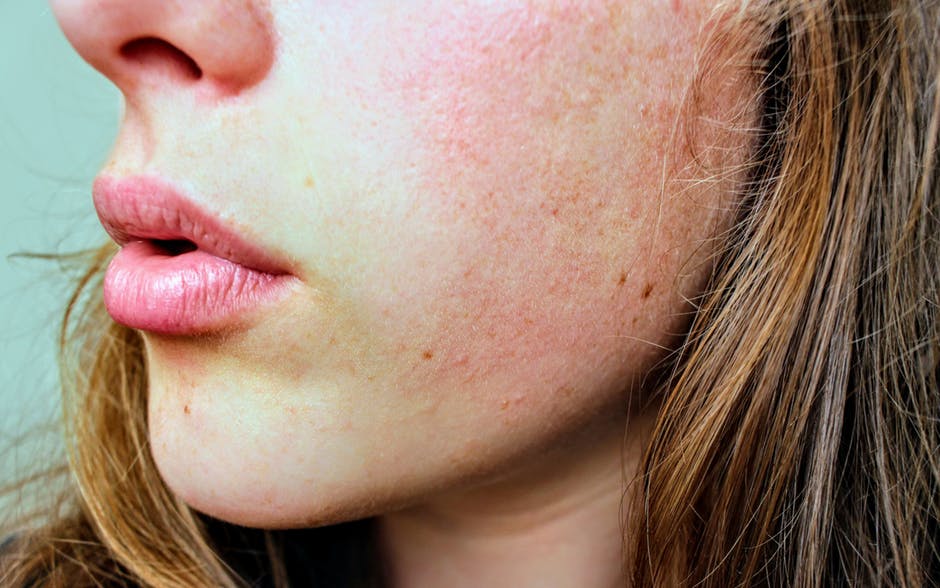Can Stress Cause Skin Problems?

It’s common for people to have skin problems, with up to one in three Americans experiencing them at any given time. Examples of these problems include acne, contact dermatitis, eczema, and psoriasis. You might be wondering if can stress cause skin problems.
Chronic stress can cause hives, itchiness, and rashes. Stressors such as intense workloads, family matters, or any kind of life crisis could lead to a weakened immune system. This will then make your body more prone to skin issues.
Are you looking for ways to care better for your skin by managing stress levels? Or do want to understand why some people experience skin problems when they are under immense pressure? If so, this article is perfect for you. Get all the advice on the emotional causes of skin problems.
Learn everything there is to know about the connection between stress and skin care! Start taking control over how chronic stress is affecting your health today.
Table of Contents
Why Can Stress Cause Skin Problems?
Stress can cause skin problems because of the physiological and hormonal changes it produces. When our bodies experience stress, they release a surge of cortisol which causes inflammation in the skin.
This may manifest as acne flare-ups, eczema rashes, or psoriasis patches. In addition, stress has also been linked to an increase in oil production from the sebaceous glands, which can result in stress rashes and breakouts.
Studies have also found that stress can aggravate existing skin conditions and make them more difficult to treat. People with psoriasis or eczema may find their symptoms become worse when they are under a lot of pressure.
Also, chronic stress can weaken the immune system, making us more vulnerable to bacterial and viral infections of the skin. This may lead to exacerbation of existing conditions or the development of new ones.
Skin Conditions Caused by Stress
Experiencing anxiety may lead to skin problems like hives and excessive sweating. These issues can be unpleasant, causing discomfort, itching, and even affecting your self-esteem. It’s essential to understand why they occur and what you can do to manage them.
Hives Caused by Stress
A stress rash made up of hives can occur on your skin when your body creates an excess of histamine, which is also called the allergy chemical, due to stress.
Stress-related hives can cause raised bumps or welts on the skin, which can be accompanied by itching or burning sensations. Although they may occur in small or large patches, they are not usually life-threatening and do not affect your breathing.
Stress hives can be managed with a variety of treatments, depending on the severity of the condition. For mild forms, over-the-counter antihistamines may be enough to reduce itching and inflammation. These medications can also help prevent future outbreaks.
For more severe cases, topical corticosteroids can be prescribed to reduce inflammation, and in some cases, other medications may be necessary.
Chronic Sweating
Have you ever experienced sweating when you feel nervous or anxious? This is a usual bodily reaction called emotion-induced sweat. This comes from the apocrine glands in specific areas such as the armpits, scalp, and groin.
The sweat that your body produces when you are stressed is thicker and more oily than the sweat produced during exercise.
To feel more comfortable, wear clothing that allows air to pass through and keep the affected areas well-ventilated. It is also important to use antiperspirants and shower regularly to prevent bacteria growth that can lead to infection. Although, learning to reduce stress is the best solution.
Stress Itching
Itching is another common symptom of stress. It can be caused by a wide variety of factors, such as emotional tension or skin irritation due to excessive sweating.
Stress itching can cause the affected areas to become inflamed and even develop small bumps. To prevent further irritation, its important to keep the area clean and moisturized with lotions or creams. Its also important to reduce stress levels and practice good stress management techniques such as deep breathing and mindfulness exercises.
If the itching becomes too severe, a doctor may prescribe topical steroids to help soothe and reduce inflammation. In some cases, antihistamines may be recommended to provide more relief.
Protecting Your Skin From Stress
The best way to protect your skin from stress is by taking steps to reduce your overall stress levels. However, this might not always be possible. here are some things you can do to help alleviate the symptoms.
Get Enough Sleep
A lack of sleep can leave your skin feeling dry and itchy. Make sure to get at least seven hours of quality sleep each night to keep your skin looking healthy.
Stay Hydrated
Dehydration can cause your skin to become dry and flaky. This can add to the itchiness caused by stress. Be sure to drink plenty of water throughout the day.
Eat Healthy Foods
Eating a healthy diet with plenty of fruits and vegetables can help keep your skin hydrated, preventing further irritation from stress.
Rethink Your Skincare Routine
If youre noticing that your skin is more sensitive due to stress, it may be time to reevaluate your skincare routine. Choosing gentler products with fewer harsh chemicals can help reduce inflammation and irritation. We advise looking at the best natural skincare routine here.
Take Breaks
Whenever possible, take breaks throughout the day to give yourself some time away from stressful situations or environments. Taking a few minutes to yourself can help calm your body and mind.
Practice Stress Management Techniques
Its important to practice good stress management techniques such as deep breathing and mindfulness exercises. These can help lower your overall stress levels, which in turn will reduce any itching or irritation you may be experiencing on your skin. Taking some time out of your day for relaxation is also beneficial for your overall health and well-being.
Looking For More Skincare Advice?
So, can stress cause skin problems? Yes. When it comes to skin problems, stress can be a major contributing factor. To help alleviate the symptoms by following out suggestions in this article.
For more useful resources on how you can reduce stress levels for better overall health and well-being, visit our website today!






